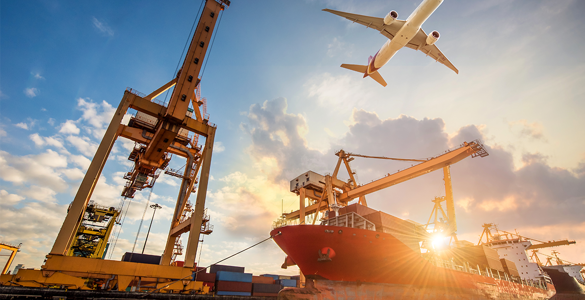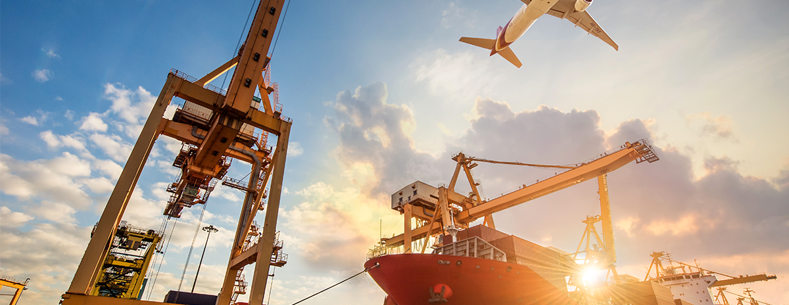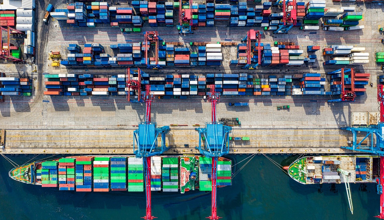UK free trade negotiations: what’s the latest?
Following its exit from the EU the UK has begun negotiating its own free trade agreements. In addition to negotiating the UK’s future relationship with the EU and attempting to roll-over a number of EU trade agreements, the UK Government has initiated negotiations on new trade agreements with a number of countries around the world.
This blog is the first in a series of articles following these non-EU related trade negotiations. The series will provide updates as negotiations progress and agreements are signed, and will consider their impact on Wales.
Who is the UK negotiating with?
The UK Government has initiated free trade agreement negotiations with the US, Japan, Australia and New Zealand. It has also declared its intention to accede to the Comprehensive and Progressive Agreement for Trans-Pacific Partnership (CPTPP), a plurilateral trade agreement between 11 countries which includes Canada, Australia, New Zealand and Japan.
What progress has been made so far?
The coronavirus pandemic has adversely affected the frequency and nature of the UK’s trade talks and therefore the UK Government’s ability to progress its negotiations. However, talks have continued over recent months with negotiations being held virtually where face-to-face talks have not been possible.
US
The UK-US trade agreement negotiations commenced on 5 May. Prior to this, the UK and US published their overarching objectives for the negotiations. To date, three rounds of negotiations have taken place with the next scheduled for early September where both sides are expected to exchange their first Market Access offers.
An update provided by the Secretary of State, Liz Truss MP after the third negotiation round, which ended on 7 August, states that ‘positive progress continues to be made’ and that most areas of negotiation are moving into the ‘advanced stages’ of talks. The update states that talks will continue at pace throughout the autumn. However, the Financial Times reported in July that it is unlikely a deal will be agreed by the end of the year.
Japan
The UK-Japan trade agreement negotiations began on 9 June. The UK Government published its objectives on 13 May 2020, stating its intention to seek an agreement that builds on the EU-Japan Economic Partnership Agreement whilst securing additional benefits for UK businesses.
The Financial Times reported on 22 June that both countries had limited time to reach an agreement, in order to make sure the Japanese Parliament could ratify the deal before the end of the transition period when the EU-Japan agreement ceases to apply to trade between both countries. On 29 August the Japan Times reported that both sides now hope to reach agreement before the end of September, with talks focusing on the last remaining key issue: Japanese tariffs on UK Blue cheese.
Australia and New Zealand
The UK launched its objectives for the negotiations with Australia and New Zealand on 17 June 2020. Talks subsequently commenced on 29 June and 13 July respectively.
To date, one round of negotiations has taken place between the UK and Australia, held virtually between 29 June and 10 July. According to the update provided by Liz Truss on 14 July, discussion covered all areas of a comprehensive trade agreement including trade in goods, customs, and digital/e-commerce. Exploratory discussions were also held on Clean Growth, Development, Women’s Economic Empowerment, and Innovation. The second round of talks is expected to take place in September.
The UK has also held one round of negotiations with New Zealand between 13 and 14 July, which was also held virtually. The update provided by Liz Truss following the first round stated that both countries had emphasised their desire to be ‘particularly ambitious’ in specific areas such as digital trade, cross-border trade in services, and reducing burdens on exports from customs procedures. The next round of talks is expected to take place in October.
Impact on Wales
Alongside the negotiating objectives for each trade agreement, the UK Government has also published a scoping assessment outlining its preliminary assessment of the potential long-run impacts of the agreements. These assessments outline the potential impact of each agreement on the UK’s GDP as a whole, as well as the UK Nations and Regions’ Gross Value Added (GVA).
Table 1: Potential impact of agreements on UK GDP
| Agreement | Change in UK GDP over 15 years |
| UK-US | Increase of 0.07% or 0.16% (depending on the extent of tariff liberalisation and reduction in non-tariff measures agreed) |
| UK-Japan | Increase of 0.07% |
| UK-Australia | Increase of 0.01% or 0.02% (depending on the extent of tariff liberalisation and reduction in non-tariff measures agreed) |
| UK-New Zealand | Limited change of 0.00% |
Table 2: Potential impact of agreements on GVA in Wales
| Agreement | Change in Wales GVA over 15 years |
| UK-US | Increase of 0.05% to 0.15% or 0.25% to 0.40% (depending on the extent of tariff liberalisation and reduction in non-tariff measures agreed) |
| UK-Japan | Increase of 0.05% to 0.15% |
| UK-Australia | Increase of 0.00% to 0.05% |
| UK-New Zealand | Increase of 0.00% to 0.05% |
The negotiating objective documents also provide some examples of where the UK Government believes there are specific benefits for sectors in Wales from each agreement. For example, a UK-US agreement could benefit Welsh lamb producers, the Welsh automotive, steel and ceramics sectors. Additionally, the documents state that Welsh businesses currently exporting medicinal and pharmaceutical products to Australia could see reduced barriers to trade from a UK-Australia agreement.
What is the Welsh Government’s view?
The Welsh Government’s main trade priority is a comprehensive UK free trade agreement with the EU. In relation to trade negotiations with other countries, the Welsh Government has argued that ‘new Free Trade Agreements (FTA) should not be seen as a substitute to an FTA with the EU, but should instead be a complement to it’.
The Minister for International Relations and Welsh Language, Eluned Morgan MS, has stated that after the UK’s negotiations with the EU, a trade agreement with Japan is the Welsh Government’s main priority. This is to ensure continuity for Welsh businesses already benefitting from the EU-Japan Economic Partnership Agreement.
The Senedd’s External Affairs Committee will take further evidence from the Minister for Welsh Language and International Relations on trade negotiations on 24 September.
Article by Rhun Davies, Senedd Research, Welsh Parliament






